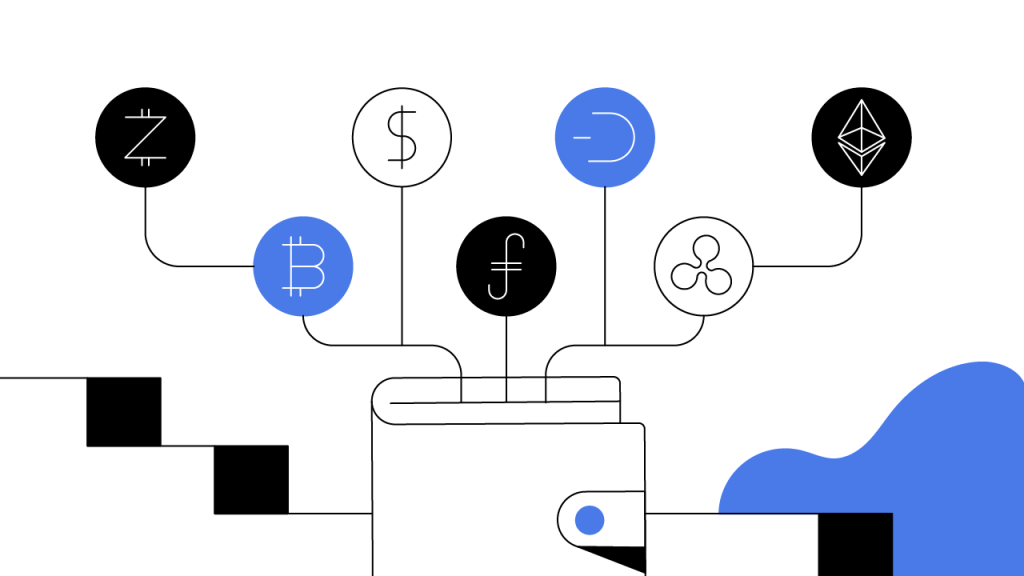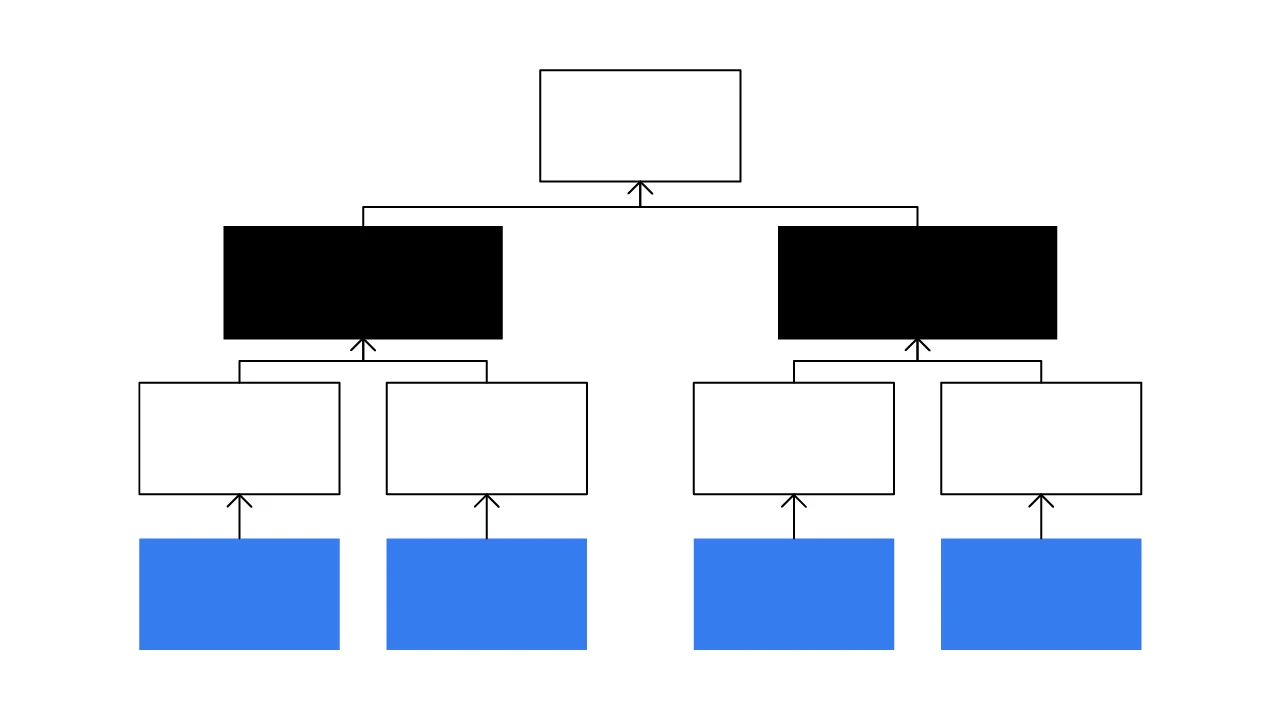What Are HD Crypto Wallets?
HD wallets ushered in a crypto wallet revolution by offering multi-currency support, thus easing account recovery, and improving security and privacy.
Updated March 10, 2022 • 2 min read

Summary
A hierarchical-deterministic (HD) wallet generates a new key pair from a master key pair for each crypto transaction to enhance privacy and security. Its hierarchical structure resembles that of a tree, with the master key “determining” the key pairs that follow it in the hierarchy. HD wallets have multi-currency support and can be restored with a recovery phrase. The vast majority of wallets are hierarchically deterministic.
A Time Before HD: Non-Deterministic Wallets
Years ago, non-deterministic (ND) bitcoin (BTC) wallets generated random key pairs to be used as receiving and change addresses. They had no relation to each other, which meant you had to back up each key pair individually and keep track of all transaction keys as you bought and sold your crypto. ND wallets are “non-deterministic” in the sense that there’s no master key pair from which the other key pairs are derived. Since the mid-2010s, ND wallets have been largely replaced by hierarchical-deterministic (HD) wallets.
HD Crypto Wallet Improvements
In 2012, HD wallets became possible with BIP 32, a Bitcoin Improvement Proposal (BIP) that introduced the creation of a hierarchical tree-like wallet structure. BIP 32 gained popularity with crypto enthusiasts quickly, and numerous wallets with this structure hit the market soon afterwards. HD wallets generally have a master key pair: an extended public key (XPUB) and an extended private key (XPRIV). The XPRIV generates all the private keys, while the XPUB can show the balances of all the public keys within the wallet. This structure solved the problem of users needing to generate their own keys for transactions, which has caused security issues, sometimes resulting in loss of funds. Unlike its non-deterministic predecessor, all HD wallet addresses can be generated from the master key, thus eliminating the need for storing multiple key pairs.
In a HD wallet, the master key pair serves as the foundation, which then branches off into private keys for different cryptocurrencies — and from there goes to key pairs for each transaction. BIP 44, another Bitcoin Improvement Proposal, created a specific tree structure with multiple account capability.
HD crypto wallets offer stronger privacy than ND wallets because key pairs are derived automatically for every transaction. Because Bitcoin and other blockchains are public ledgers, address balances are public knowledge. However, as you have multiple addresses, others may not know which addresses are linked to you and which aren’t — provided you haven’t shared your XPUB. Your XPUB can show all of your balances, and therefore should never be shared.
Beyond privacy, HD wallets offer enhanced security because every transaction received is on a different address. Someone would need multiple private keys to access your wallet’s multiple crypto balances. So as long as you haven’t shared your XPRIV, your funds should be secure. And most HD wallets make it difficult, if not impossible, to share confidential information such as your master key pair.
Another improvement to HD wallets came with Bitcoin Improvement Proposal (BIP) 39, which allowed users to store their master key pairs — and hence their whole wallets — as a recovery phrase. A recovery phrase is typically a 12-, 18-, or 24-word phrase that must be recorded sequentially and stored safely as a back-up in case you lose access to your wallet or it stops working. This phrase will let you regenerate your wallet and all associated crypto balances. For this reason, it must be stored offline as an absolute secret. If you lose your recovery phrase — and lose your wallet or forget your PIN — your funds could be lost forever.
Cryptopedia does not guarantee the reliability of the Site content and shall not be held liable for any errors, omissions, or inaccuracies. The opinions and views expressed in any Cryptopedia article are solely those of the author(s) and do not reflect the opinions of Gemini or its management. The information provided on the Site is for informational purposes only, and it does not constitute an endorsement of any of the products and services discussed or investment, financial, or trading advice. A qualified professional should be consulted prior to making financial decisions. Please visit our Cryptopedia Site Policy to learn more.

Is this article helpful?


